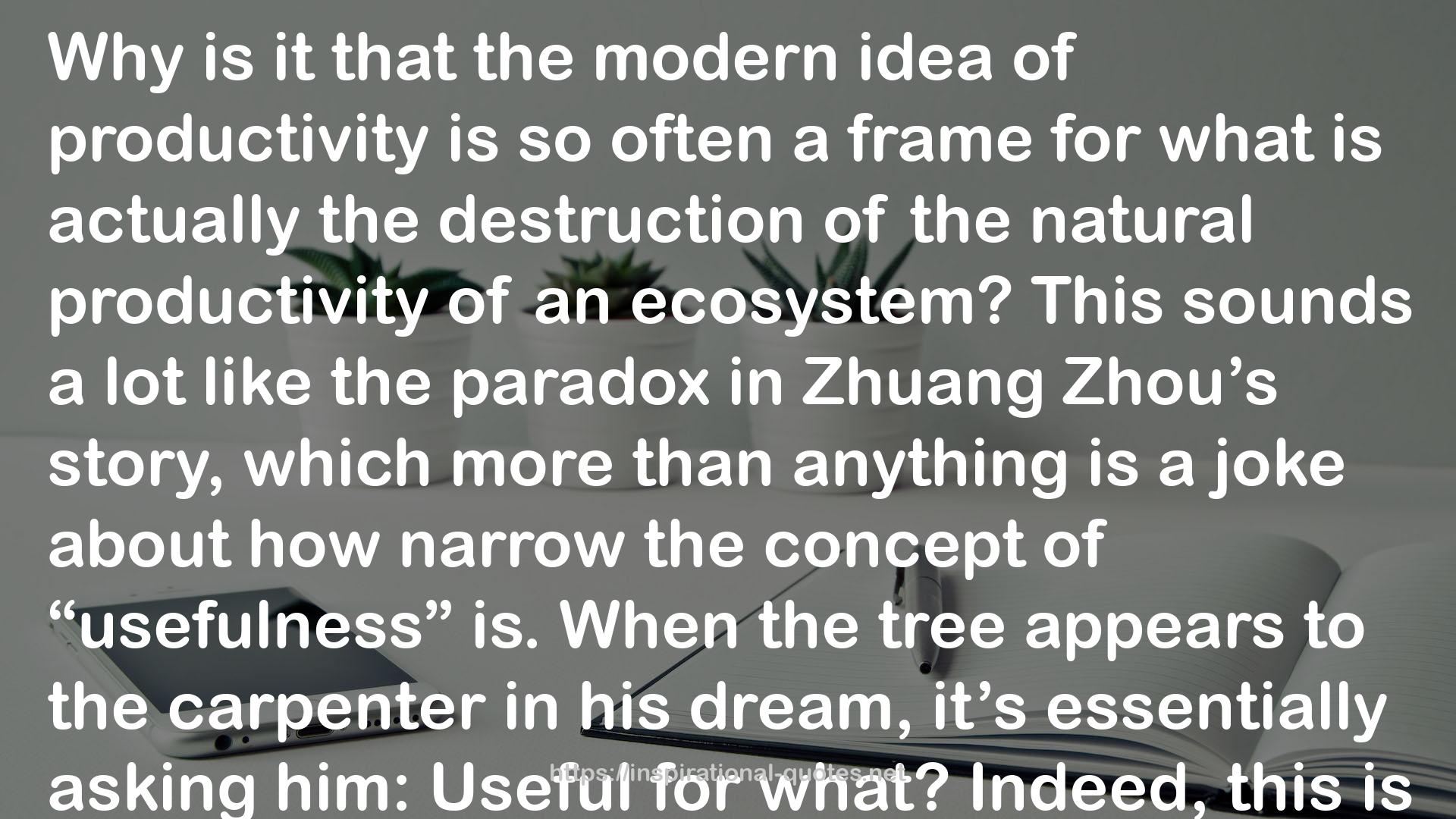" Why is it that the modern idea of productivity is so often a frame for what is actually the destruction of the natural productivity of an ecosystem? This sounds a lot like the paradox in Zhuang Zhou’s story, which more than anything is a joke about how narrow the concept of “usefulness” is. When the tree appears to the carpenter in his dream, it’s essentially asking him: Useful for what? Indeed, this is the same question I have when I give myself enough time to step back from the capitalist logic of how we currently understand productivity and success. Productivity that produces what? Successful in what way, and for whom? The happiest, most fulfilled moments of my life have been when I was completely aware of being alive, with all the hope, pain, and sorrow that that entails for any mortal being. In those moments, the idea of success as a teleological goal would have made no sense; the moments were ends in themselves, not steps on a ladder. I think people in Zhuang Zhou’s time knew the same feeling. "
― Jenny Odell , How to Do Nothing: Resisting the Attention Economy
